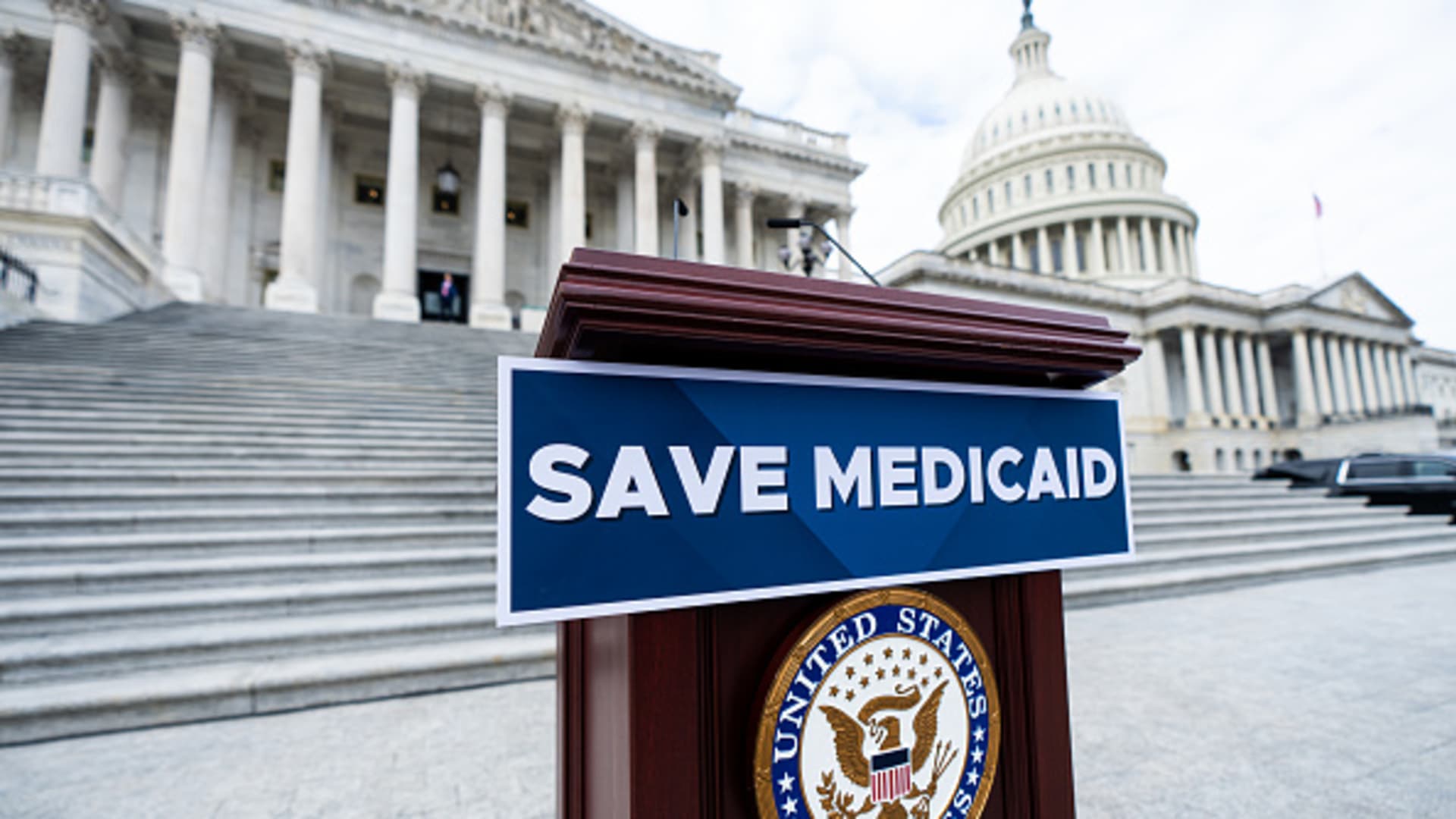Risks Ahead: Understanding How Proposed Congressional Cuts Could Undermine Medicaid and the Economy
A recent report has raised alarms regarding the proposed budget cuts by Congress, emphasizing the potential repercussions on Medicaid and, by extension, the economy as a whole. These suggestions from lawmakers, while often framed as necessary fiscal conservatism, could have profound implications for vulnerable populations and broader economic stability. Experts are sounding the alarm, warning that these cuts could exacerbate existing inequalities and undermine healthcare access for millions of Americans.
Understanding Medicaid: A Critical Safety Net
Medicaid, established in 1965, serves as a vital safety net for low-income individuals and families, providing healthcare coverage to over 80 million Americans. It is especially crucial for vulnerable groups, including children, elderly individuals, and people with disabilities. The program covers a wide array of services, including hospital stays, physician visits, long-term care, and preventive services.
Congressional proposals to cut Medicaid funding are particularly concerning as they threaten to strip away access to essential healthcare services. The ramifications of these cuts extend beyond individual health outcomes; they ripple through the economy, affecting job growth, healthcare costs, and overall economic productivity.
The Proposed Cuts: What’s at Stake?
Proposals from Congress suggest significant austerity measures, including:
- Reduced Federal Funding: A decrease in federal matching funds for Medicaid could lead to states having to cut benefits, reduce eligibility, or even eliminate the program altogether in extreme cases.
- Increased State Burden: States already grappling with budget constraints may be forced to divert funds from other critical areas such as education and infrastructure to maintain Medicaid services.
- Eligibility Restrictions: Proposals may tighten eligibility criteria, making it more difficult for low-income families to access necessary healthcare services.
Each of these cuts poses a direct risk to the health and well-being of millions, but they also carry broader economic implications that deserve careful examination.
Economic Ripple Effects of Medicaid Cuts
The economic implications of proposed Medicaid cuts extend far beyond the healthcare sector. Consider the following potential impacts:
- Increased Uncompensated Care: Hospitals and healthcare providers often absorb the costs of treating uninsured patients. As more individuals lose Medicaid coverage, hospitals may experience an increase in uncompensated care costs, leading to financial strain, potential layoffs, and closures.
- Reduced Workforce Productivity: Access to healthcare is crucial for maintaining a healthy workforce. If individuals lack insurance or access to necessary treatments, they may miss work or be less productive when they are on the job, ultimately hindering economic growth.
- Higher Long-Term Costs: Preventive care covered by Medicaid can reduce long-term healthcare costs. Cutting access to such services may lead to more severe health issues, resulting in higher costs for both individuals and the healthcare system.
The Impact on Vulnerable Populations
While the economic implications are severe, the most immediate and devastating impacts are often felt by the most vulnerable populations, including:
- Children: Medicaid plays a crucial role in providing children with necessary healthcare services. Cuts could lead to increased rates of childhood illness and long-term health issues.
- Older Adults: Many elderly individuals rely on Medicaid for long-term care. Cuts could jeopardize their access to critical services, putting them at risk for deteriorating health and increased institutionalization.
- Disabled Individuals: Medicaid is essential for providing services that support independent living for people with disabilities. Reductions in funding could limit these critical services, forcing individuals into institutional settings.
The loss of access to vital healthcare services threatens not only the health of these populations but also their ability to contribute to the economy meaningfully.
Addressing the Challenges: Potential Solutions
In light of these proposed cuts, it’s essential to explore potential solutions that could alleviate the impact on Medicaid without jeopardizing the overall economy. Some possible approaches include:
- Medicaid Expansion: States that have yet to expand Medicaid under the Affordable Care Act could do so to cover more low-income individuals, thereby reducing the financial burden of uncompensated care on hospitals.
- Innovative Financing Models: Exploring value-based care models can incentivize providers to focus on preventive care, which can mitigate long-term costs associated with untreated conditions.
- Community-Based Initiatives: Investing in community health initiatives can help address health disparities and improve access to care for low-income populations, ultimately reducing reliance on Medicaid.
A Call for Advocacy and Awareness
As these proposed cuts move through Congress, it’s crucial for citizens to understand the implications and advocate for policies that protect Medicaid. Engaging in dialogue with representatives, participating in community organizations, and raising awareness can create momentum for preserving and enhancing this essential program.
In conclusion, while Congress’s proposed budget cuts to Medicaid may be framed as a necessary step towards fiscal responsibility, the potential risks are significant and far-reaching. These cuts could undermine the health of millions of Americans and destabilize the economy. By focusing on innovative solutions and ensuring that the voices of vulnerable populations are heard, we can work towards a more equitable healthcare system that supports both individual health and economic resilience. The stakes are high, and the time to act is now.
See more BBC Express News

